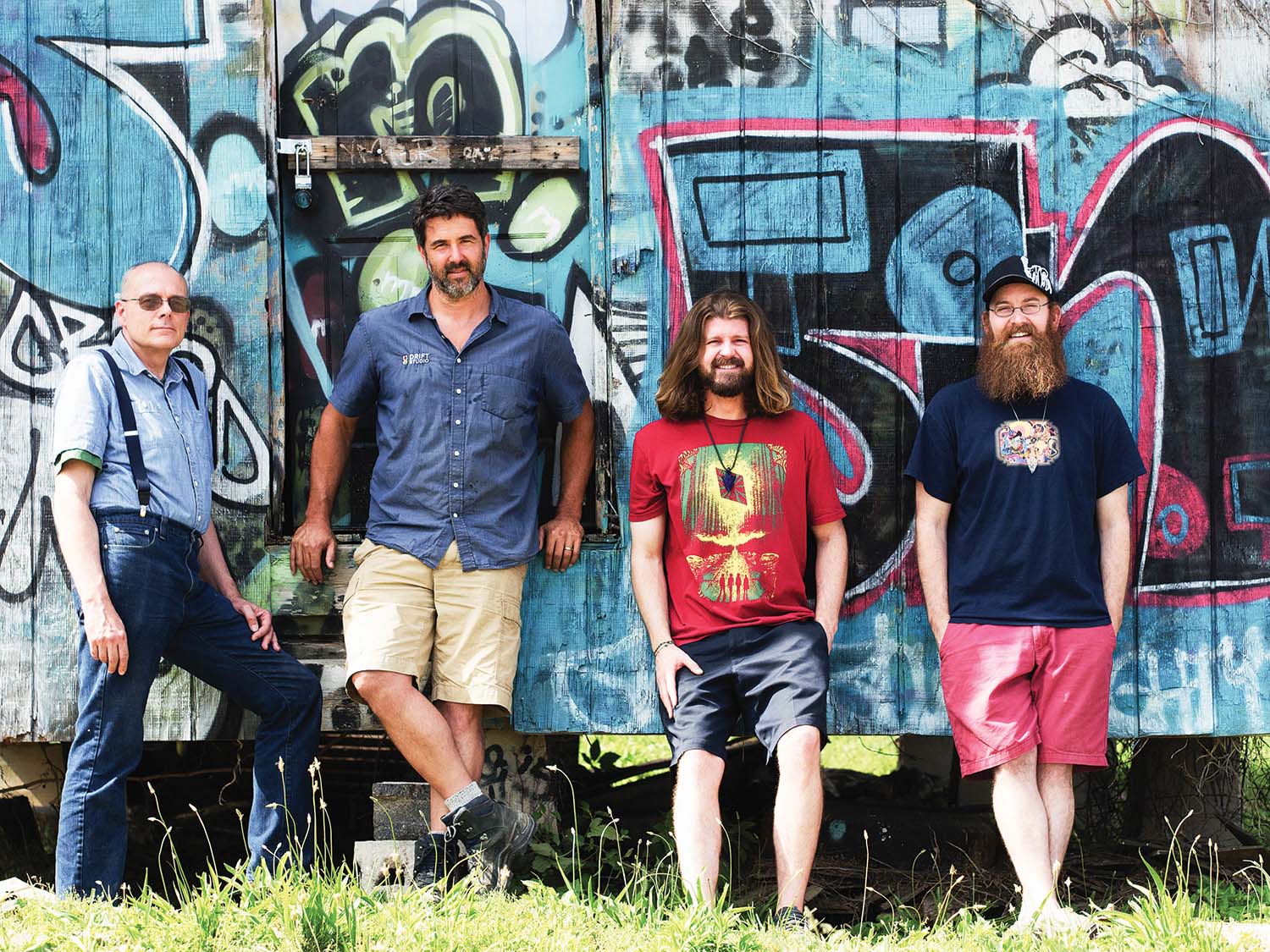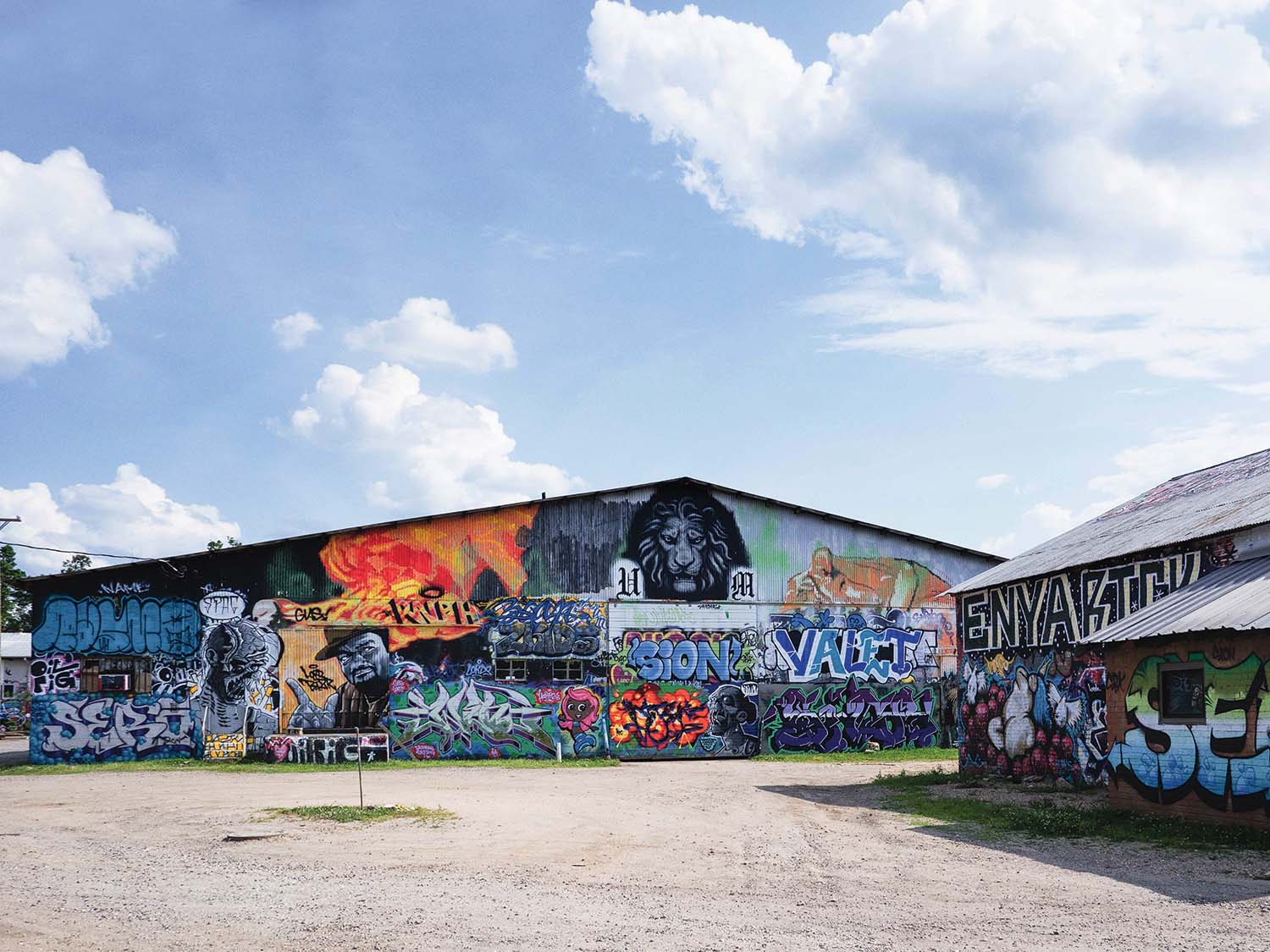
Photo by Rimas Zailskas
“There is as much art on the outside of the [Foundation Studios] buildings as on the inside,” says Kean Werner, head of Foundation Woodworks, a woodworking shop within the Foundation Studios complex.
Confronted by so much graffiti, visitors aren’t sure what to expect once they step inside. But when they’re pleasantly surprised by the airy, professional spaces, it fulfills the complex original vision of Brent Starck and his partners, Eddie Dewey and Chris Eller. They spearheaded the acquisition and refurbishment of the 14-acre tract and all its graffiti-covered warehouses, and the mission was manifold: to attract visitors, to welcome local artists who’ve been priced out elsewhere, and to keep Asheville weird, as the bumperstickers used to say.
“Our goal for Foundation Studios is to create affordable maker space, and also a bit of a village,” says Dewey. Starck explains: “We’re taking a collection of condemned old warehouses that would almost certainly have been demolished and restoring them to create a campus of artists, makers, and local businesses in the spirit of what makes Asheville — the River Arts District specifically — so great.”
The name “Foundation” is an homage to a homegrown, user-built skate park on an old concrete-building foundation that skaters call “Foundy.” The owners let it stay, and named the road leading into the project Foundy Street.
The most recent space to open is Level42, a combined gallery and working studio launched by co-owners Ben Ross and Yuri Federman. Level42 sells glass, art prints, minerals, and will exhibit a range of art mediums. Eighteen full-time glass artists share the studio, where resident makers as well as internationally recognized artists offer glassblowing classes. Torch space for glasswork is available for rent.
“Simply walking though the Foundation, and taking in the graffiti, will take your mind to places it hasn’t been before,” says Ross. Federman agrees, adding, “This area of the River Arts District truly has soul.”
That cool vibe started when the owners took a bold step. Not only did they preserve the street art they inherited when they bought the buildings, they encouraged the graffiti artists to continue to paint the warehouses. That meant winning over the municipal authorities, an effort requiring gritty determination and creative diplomacy.
“Two weeks after we took title,” Dewey recalls, “we started getting letters from the city telling us to remove the graffiti or get fined. Then Brent sat down with them and explained how important the artwork was.” Starck gained the support and cooperation of the City’s Legal Department and Graffiti Appeal Committee. They established the Foundation Walls project, where street artists can legally do their thing.
“There are some basic rules,” Dewey says. “But the artists monitor the project as a collective. It’s run by people within the graffiti-artist culture, not by us.” Ultimately, he and the others at the Foundation see it as an act of tough love, a stand against those who might pour too much lacquer on the local art scene.
“Asheville’s a town that’s being loved to death,” says Dewey. “We have to make sure we don’t kill it off. We want to keep Asheville being Asheville, and we love unpolished projects off the beaten path.”

Photo by Rimas Zailskas
Foundation Walls at Foundation Studios, 4-47 Foundy St. in the River Arts District. Foundation Woodworks, 17 Foundy St., 828-515-4404, foundationwoodworks.com. Level42 Gallery & Studio, 47 Foundy St., 828-767-0466, level42avl.com.